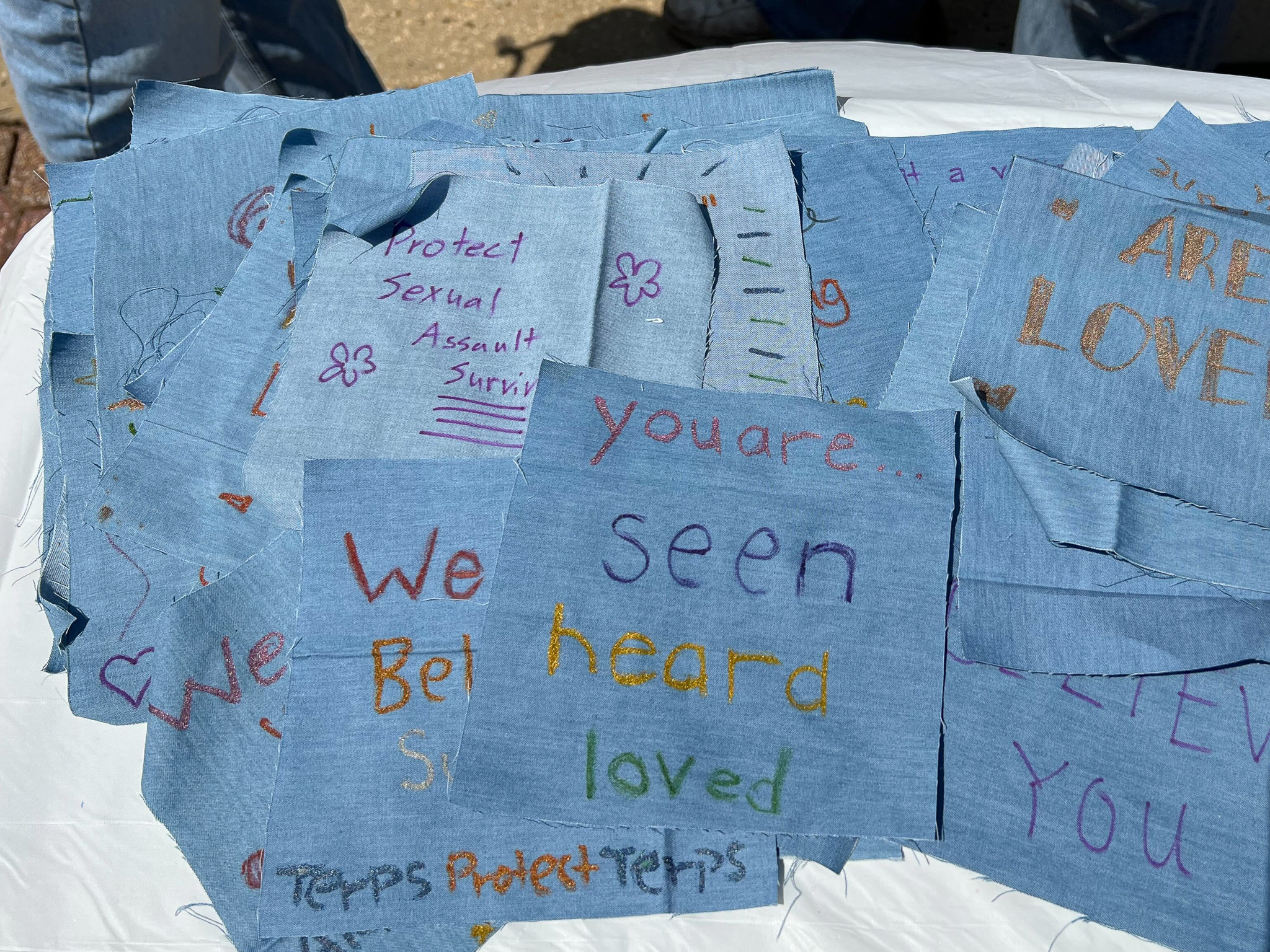University of Maryland students Wednesday celebrated Denim Day to raise awareness about sexual assault and combat victim-blaming.
Campus Advocates Respond and Educate to Stop Violence is a group run by the University Health Center that provides resources for survivors of sexual and relationship violence. The group hosted a table at the university’s weekly farmers market to mark the day.
Denim Day began in 1999 and is celebrated every year on the last Wednesday of April. It originated in Italy, after an 18-year-old girl was raped by her 45-year-old driving instructor in 1992. Years after the rapist was convicted, he appealed to the Italian Supreme Court. They ruled the act must have been consensual because the girl’s jeans were so tight she must have helped the perpetrator remove them.
[UMD students voice concerns about on-campus room selection process]
In response, women from all over Italy wore jeans in protest of the verdict.
“His case is a great example of how victim-blaming plays into the court system,” Rahi Shah, a senior public health science major who serves as an outreach peer for CARE to Stop Violence, said. “We really want to be here to support survivors and educate the community.”
Hanah Ajamian, a senior criminology and criminal justice major, is also an outreach peer for CARE to Stop Violence. He said the table aimed to remind students they have a safe place in the community.
“We know that what you’re wearing does not equal consent, that your assault is not your fault and there is support,” Ajamian said.
[UMD student workers’ groups rally to raise minimum wage, secure the right to unionize]
Students could write messages of support for sexual assault survivors on squares of denim at the group’s table.
Shayna Becker, a sophomore human development major, said she goes to the farmers market every Wednesday and was compelled to check out the booth since it was new.
Becker said she thinks the more people openly advocate for sexual assault survivors, the less alone victims will feel. Even a simple conversation or table like the group’s can make a difference, she said.
Meghan Longo, a senior human development major who visited the table, also said education on sexual assault is crucial.
“You can’t prevent something you don’t understand,” Longo said. “When students are aware of these types of things, they can take better actionable steps to prevent these things.”.



